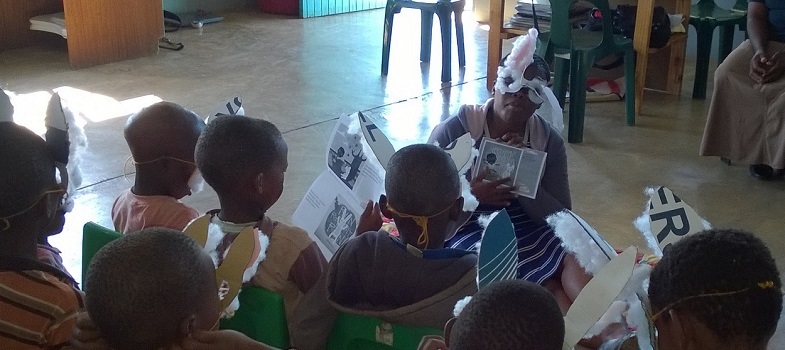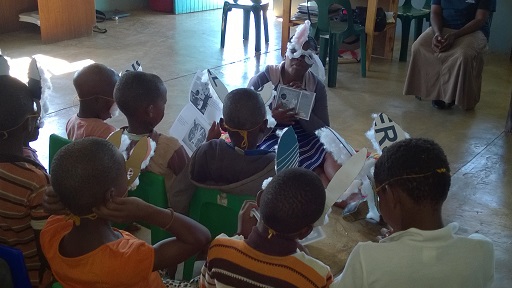Section 3: Preparing to learn and teach early reading
Introduction
This section presents ideas and resources that can be used to help children develop their early reading skills through:
- asking and answering questions
- thinking about daily routines
- looking at pictures and responding to them
- physical movement
- songs and rhymes.
Throughout, the emphasis is on speaking and listening.
You will:
- consider how asking children questions can develop thinking skills
- explore how to develop children’s speaking and listening skills through using pictures
- understand the contribution that physical movement makes to early literacy.
As children move into learning how to read, it is important that they are given a range of opportunities to talk with you and with each other. Speaking and listening underpins the successful development of their early literacy skills.
Children enjoy and learn through play and they also learn through experimentation, exploration, and trial and error. Songs and rhymes based on the children’s own everyday experiences (such as shopping, or travelling to the market) are useful, because they draw on shared experiences while supporting early literacy skills.
Through active participation, such as asking and answering questions, children will also develop thinking skills. Instead of listening to the teacher and memorising answers, children are required to verbalise their thoughts aloud. In reading lessons, children need to talk about the story, predict what happens next and answer questions.
The more enjoyment and enthusiasm for reading you can generate among the children, the more your class is likely to want to learn to read – you are a reading role model for your classes. In Section 1, you reflected on your own experience as a reader and writer, and how you use literacy in your daily life. As a teacher, it is important that your children see you reading and writing, and that you become a role model for them.
In this section we focus on how the four specific strategies to support children’s early reading development:
- everyday routines and activities
- using pictures to develop speaking and listening
- using physical movement to support early reading
- songs and action rhymes for reading.
We start by learning more about comprehension and developing thinking skills.




